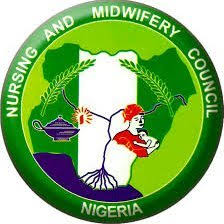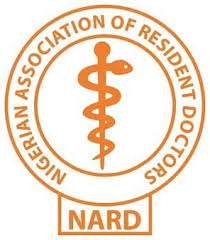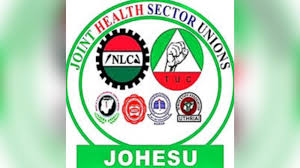The attention of the Medical Laboratory Science Council of Nigeria (MLSCN) has been drawn to a Public Notice publication in The Punch Newspaper of Monday, June 8, 2020 by the College of Nigerian Pathologists(CNP) captioned RE: PRESS BRIEFING BY THE MEDICAL LABORATORY SCIENCE COUNCIL OF NIGERIA ON: Progress report on pre-market validation of COVID-19 Rapid Test Kits(RTKs) and Unveiling of Guidelines for Private Medical Laboratories seeking to provide COVID-19 testing through completely private arrangement by the Registrar/Chief Executive Officer, MLSC N.
The Management of MLSCN expresses its disappointment at the falsehood, misleading facts and bad faith exhibited in the said publication as this makes mockery of the current collaborative efforts of the PTF, NCDC, FMoH, MLSCN and other relevant and serious health workers/institutions who have put their lives at risk in the fight against the scourging effect of the COVID-19 pandemic in Nigeria.
Therefore, it has become imperative that MLSCN sets the record straight for the discerning public by addressing the three main issues raised by the CNP in the offensive publication. They are:
a. Regulation of Medical Laboratory Science Practice
b. Validation of COVID-19 Rapid Test Kits
c. Issuance of supposed threat by MLSCN
A. REGULATION OF MEDICAL LABORATORY SCIENCE PRACTICE
1. For all intents and purposes, the statutory mandate of MLSCN on this subject is derived from its extant law particularly Section 4 of the MLSCN Act (CAP M25 LFN) which empowers MLSCN in —
4(b) - to regulate the practice of Medical Laboratory Science in Nigeria
4(h) - inspect, regulate and accredit medical laboratories; amongst other functions
2. On the other hand, Medical and Dental Practitioners Act (CAP M8 LFN) which is the law establishing the Medical and Dental Council of Nigeria (MDCN) in Section 1(2)(e) states
"The Council shall have responsibility for making regulations for the operation of clinical laboratory practical in the field of Pathology which includes Histopathology, Forensic Pathology. Autopsy, Cytology, Clinical Cytogenetic, Haematology, Medical Microbiology and Medical Parasitology, Chemical Pathology, Clinical Chemistry, Immunology and Medical Virology"
Juxtaposing the provisions of the MLSCN Act cited above with the MDP Act particularly the highlighted phrases, the question that arises is — which agency regulates medical laboratory science practice in Nigeria? Secondly, is there any ambiguity in the regulatory function of MLSCN vis a vis MDCN?
Before answering these posers, it is crucial to inform the discerning public that the Supreme Court as per Adekeye, J.S.0 in Jabin Ogaga vs. Thomas E. Umukoro & 2 Others stated — "A statute must not be given a construction that will defeat its purpose they ought to be accorded their simple grammatical meaning''.
Thus, in interpreting the highlighted phrases in the Acts quoted above, the Nigerian Courts have in a plethora of cases given simple grammatical meaning to the provisions of the MLSCN and MDP Act. One of such cases is the Nigerian Union of Pharmacists, Medical Technologists and Professions Allied to Medicine & Anor vs. Obafemi Awolowo University Teaching Hospital Complex Management Board & 6 Others delivered on 27" January, 2016. In this case, the erudite judge in distinguishing the laws governing the MLSCN and MDCN stated that Medical Laboratory Science is a distinct and independent profession and MLSCN is the statutory regulator for the practice of Medical Laboratory Science throughout the length and breadth of Nigeria. The court further stated that Pathologists should henceforth concentrate their energies on those aspects of medicine that are peculiar to them and not covered by the MLSCN Act. Indeed this laid to rest the argument on which agency is statutorily mandated to regulate Medical Laboratory Science Practice.
B. VALIDATION OF COVID-19 RAPID TEST KITS
The publication stated that validation of kits can be carried out by laboratories that have proper structure, are licensed by government and accredited. The question that begs to be answered is — how does the government perform its operations if not through its statutory agencies saddled with such responsibility? Secondly, which statutory agency in Nigeria has such mandate?
In answering these posers, MLSCN will educate CNP and the Public as follows:
1. The statutory mandate of MLSCN to conduct validation of test kits is derived from Section 4(e) of the MLSCN Act which states - "regulate the production, importation, sales and stocking of diagnostic laboratory reagents and chemicals"
The MLSCN has two laboratories through which it discharges this great, critical and very sensitive responsibility. These are the National External Quality Assurance Laboratory (NEQAL) situated in Saye, Zaria, Kaduna State and the in – Vitro Diagnostics (IVD) Laboratory situated in Yaba, Lagos State.
2. For the avoidance of doubt, NEQAL has been validating HIV/AIDS test kits being used in Nigeria. The MLSCN IVD Laboratory, Lagos is not a routine diagnostic medical laboratory and therefore is not regulated nor accredited by MLSCN as implied by CNP when it said - "we are surprised that an agency set up as a regulator would go on to set up a laboratory for the execution of the function it is meant to regulate". The IVD Laboratory is rather a testing laboratory. The international standard for the IVD laboratory is ISO/I EC 17025 while the international standard fora diagnostic medical laboratory is ISO 15189.
3. MLSCN does not manufacture any IVD. What MLSCN does is to carry out a 2' party evaluation of manufactured IVDs. Regulators are at liberty to establish laboratories for 2" party evaluation of any product of interest or use 3'd party evaluation, in which case the evaluation can be carried out by an outsourced service provider. Examples include NAFDAC labs and SON labs which are accredited to ISO 17025.
4. In the Common Submission Dossier Template for premarket submission of IVDs developed by the African Harmonisation Working Party (AHWP) using the principles of Global Harmonisation Task Force (GHTF), pre-market approval of those IVDs considered to be high risk to individual or public health required supporting evidence of the performance and operational characteristics of the device. What MLSCN validation seeks to achieve is to obtain supporting evidence to confirm the manufacturer's claim in line with AHWP.
5. Regulatory landscape for drugs is quite advanced in Nigeria unlike for IVDs. Hence, the ignorant and misleading submissions of the CNP that MLSCN is carrying out diagnostic laboratory test at its IVD laboratory may be attributed to the plug and play of knowledge of clinical trials carried out for drugs. Since IVD (of which the Rapid Test Kits are inclusive) are used in- vitro, such test may not necessarily be carried out in a diagnostic medical laboratory setting. Therefore, MLSCN did not overreach its boundaries nor take up roles not assigned to it by law but acted within the ambit of its statutory mandate for the protection of the interests of Nigerians.
6. In addition, M LSCN has at all material times throughout the validation process carried along NCDC, FMoH and the PTF. So one wonders when CNP sounds a note of warning to these government agencies to be properly guided when in fact they have never been ignorant of all events.
7. MLSCN is very confident and proud of the professional and technical advice provided to the Federal Government of Nigeria in the utilization of COVI D-19 Rapid Test Kits.
C. ISSUANCE OF SUPPOSED THREAT BY MLSCN
1. MLSCN wishes to reiterate that the Press briefing was to inform and effectively engage the public and stakeholders on its statutory responsibility as regards IVDs and the risk involved in using COVI D-19 RTKs that failed the validation as this will greatly ha mper the fight to control the spread of the coronavirus.
2. Thus, it is disheartening to observe that the CNP is interpreting MLSCN statements as threats and is openly encouraging its members to break the laws of the country with impunity through its Public Notice. It is pertinent to state that the protocols for addressing the current pandemic by the PTF, FMoH, NCDC and MLSCN and other serious stakeholders are in the public domain. These protocols were primarily designed to defeat COVI D-19 and save the lives of Nigerians and never to massage the ego of any health care professional.
3. Having regard to the above, CNP is hereby counselled to stop making misleading statements to the general public who are already traumatised by COVI D-19 with its attendant lockdowns and debilitating economic stagnation in all sectors. They should therefore stop the exhibition of sheer ignorance and come down from their Olympian heights to learn from the Guides offered by MLSCN.
CONCLUSION
Finally, MLSCN hereby categorically states as follows:
1. The regulation of medical laboratory science practice and the validation of in-vitro diagnostics test kits, chemicals and reagents is the statutory responsibility of MLSCN.
2. With its developed protocols, highly qualified and competent staff, functional and well-equipped IVD laboratory, MLSCN is eminently capable to discharge this very important responsibility to the Nigerian Public.
3. MLSCN upholds its guidelines for Private Medical Laboratories seeking to provide COVID -19 testing as it is a product of the collaborative efforts with other major stakeholders in the frontline of the war against the current pandemic. As we all know over the world, COVID -19 is blind to politics and has no room for professional competitions. The guiding creed in all this is securing the lives of our people from this pandemic.
4. MLSCN will continue to exercise its statutory mandate and refuses to be deterred by frivolous, mischievous and inciting publications made in bad faith by any person or group of persons encouraging its members and the public to disobey the clear provisions of the law.
Signed
Management




